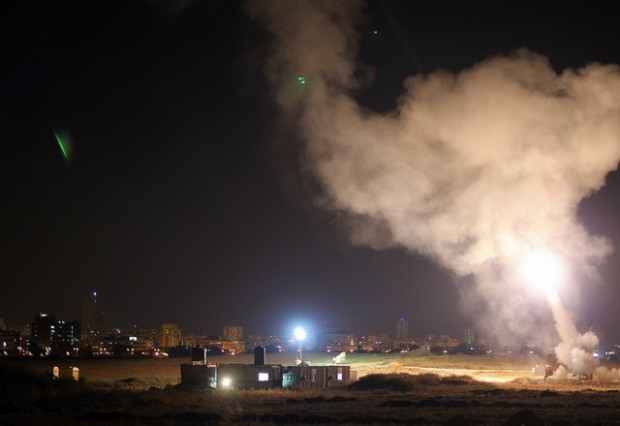The Washington Post bought into that bizarre Gaza equation, but it’s not quite working out
 Last month the Editorial Board of The Washington Post endorsed the Obama administration’s support of the unity deal between Hamas and Fatah.
Last month the Editorial Board of The Washington Post endorsed the Obama administration’s support of the unity deal between Hamas and Fatah.After reading, Restore trust to douse the fire in Gaza, the Post’s take on Operation Protective Edge, it’s clear that the editors are still stuck in an intellectual rut. One paragraph in the editorial stuck out as hopelessly uninformed and illogical (emphasis added):
Those goals hardly seem worth the bloodshed — nearly 50 people reportedly had been killed in Gaza by late Wednesday, including civilians — or the economic losses to both Palestinians and Israelis. In fact, neither side wanted war. Hamas had just agreed to back a united Palestinian government with the West Bank-based Fatah movement, while Israel quietly offered a truce before the escalation of hostilities on Sunday.First of all how is Hamas’s participation in the unity government a sign that “it didn’t want war?”
As so often happens in the Middle East, acts by extremists forced these events: the kidnapping and murder of three Israeli teenagers allegedly by Hamas militants apparently acting on their own; the revenge murder of a Palestinian by Israeli thugs; the initial firing of rockets from Gaza by small militant groups challenging Hamas’s authority.
In a similar vein former Washington Post blogger, Max Fisher, now at Vox.com, wrote earlier this month:
More to the point, Hamas joined in a Palestinian unity government in April, which would seem to at least potentially shift its incentives a bit away from militancy and toward cooperation.In addition to those promoted the fantasy that the unity deal would moderate Hamas, others simply ignored any possible negative implications of the Fatah-Hamas merger.
The unity agreement didn’t require Hamas to give up its arms or accept Israel’s right to exist. By not giving up its genocidal ideology or its arms it showed that it was adopting the “Hezbollah model,” meaning that it was “establishing a better-armed entity-within-an-entity in the midst a weaker central government.” In fact rather than moderating Hamas, “Hamas officially interpreted it as an opening for militant activities of all kinds,” according to David Pollock of the Washington Institute for Near East Policy.
To be sure, the editorial is correct that Israel offered a truce. But it wasn’t “small militant groups” that refused the ceasefire, it was the big militant group, Hamas, that did.
How do I know this? Because there’s a consensus among Israeli analysts that Israel exercised restraint. In fact Nahum Barnea, usually a critic of Prime Minister Benjamin Netanyahu, wrote, “The restraint exercised by the current cabinet is really exceptional: It’s unusual both compared to right-wing governments and compared to left-wing governments.”
Confirming Barnea’s impression, peace activist Gershon Baskin wrote:
The Hamas leadership decided to ignore the possibility of a ceasefire and instead challenged Israel to “bring it on.” These irresponsible leaders are criminals to their own people. I can honestly say that Prime Minister Binyamin Netanyahu did not want to escalate this war. It is criminal that these Hamas leaders, some sitting in hotels abroad and others safely hiding underground in Gaza, have chosen to put the innocent people of Gaza in the line of fire.Hamas did not abandon its ideology.
Hamas did not abandon its weapons.
Hamas did not stop firing.
That’s why there’s a war now. To argue that “extremists forced these events” without acknowledging that Hamas is such an extremist is to be divorced from reality. I expected better from the editors of the Washington Post.
[Photo: Iron Dome missile defense fired at incoming rockets, Israel Defense Forces / Flickr ]
No comments:
Post a Comment